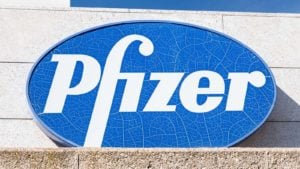
Due to their robust financial and strategic approaches, these three equities are all seeing notable progress in their respective industries. Recent financial results for the first one show robust revenue growth and enhanced gross margins, underpinned by efficient cost control. The business’s strategic goal is significant cost reductions and responsible capital deployment.
The second one has seen a remarkable expansion in its direct-to-consumer (D2C) market, especially via its streaming service. With almost 100 million subscribers, this rise reflects the rising demand for its content worldwide. Rising revenue per user and lower churn rates show that the company’s smart entry into new foreign markets and superior content offerings have increased engagement and monetization and drove subscriber growth.
A rise in transaction margin dollars, showing more profitability per transaction, highlights the third one’s financial success. Along with a rise in user interaction, the firm has also experienced a boost in its user base. These businesses take advantage of market possibilities, promote development, and produce value returns by utilizing their advantages and strategic objectives.
Discounted Upswing Stocks: Pfizer (PFE)

Pfizer (NYSE:PFE) announced $14.9 billion in sales for the first quarter of 2024; this rise was 11% in operations, excluding the contributions of Comirnaty and Paxlovid. The adjusted diluted EPS of 82 cents exceeded the forecast because of the robust cost control and positive gross margin performance. Moreover, compared to Q1 2023, adjusted gross margin increased by 530 basis points to 79.6%. The reduction in Comirnaty sales volume led to a beneficial sales mix. Paxlovid product returns were adjusted, and efficient cost control throughout the manufacturing network was one of the main drivers of this improvement.
Additionally, by the end of 2024, Pfizer plans to achieve at least $4 billion in net cost reductions. Strict cost control is key to maintaining solid stability and increasing profits. In Q1 2024, Pfizer invested $2.5 billion in internal research and pipeline development and distributed $2.4 billion in dividends.
Overall, this indicates a focus on maximizing shareholder returns and reinvesting in cutting-edge research. Pfizer has set a target gross leverage ratio of 3.25x and focuses on deleveraging its capital structure.
Warner Bros. Discovery (WBD)

Warner Bros. Discovery (NASDAQ:WBD) has made significant strides in its D2C business, particularly with its Max streaming service. In Q1 2024, the company added 2 million new users, bringing the total number of D2C users to approximately 100 million. This expansion has boosted subscriber numbers and significantly increased services and content revenue. The company’s successful expansion strategy has seen major launches in LatAm and impending rollouts in over 25 European nations, transforming Warner Bros. Discovery from a single-market player in the U.S. to a global presence in 39 countries and territories.
Further, there are already close to 100 million members worldwide, and strong international growth is anticipated. This indicates that this global expansion will likely spur more subscriber growth. Record-breaking levels of engagement have resulted from Max’s product and content advancements. The average revenue per user (ARPU) grew by 4% globally and 8% in the U.S. Hence, this increase in ARPU shows increased subscriber base monetization, reflecting its offerings’ sharp upselling and cross-selling.
Finally, the 4% increase in worldwide ARPU can be partially attributed to a greater proportion of overseas customers, whose ARPU is generally lower than that of U.S. users.
PayPal (PYPL)

PayPal (NASDAQ:PYPL) demonstrated a 4% increase in Q1 2024 transaction margin dollars compared to the previous year. This rise in transaction margin dollars indicates PayPal’s improved profitability, as the company processes more transactions at a higher profit margin. The improvement can be attributed to various strategic moves by PayPal, such as enhancing fraud detection techniques and streamlining product offerings, which yield positive financial results.
With 220 million monthly active accounts and 427 million overall active accounts after Q1, PayPal saw a 13% increase in transactions per active account over the last 12 months. Moreover, the growing user base is the cornerstone of future income expansion. The increase in PayPal’s transaction rate per active account suggests that consumers use the service more regularly. Thus, higher engagement rates frequently result in deeper client loyalty and more potential for income generation.
Lastly, password-less login and PayPal’s Fast Lane exhibit a nearly 80% conversion rate for returning users. These are two examples of initiatives designed to enhance the checkout process and boost merchant conversion rates.
As of this writing, Yiannis Zourmpanos held long positions in PFE, WBD and PYPL. The opinions expressed in this article are those of the writer, subject to the InvestorPlace.com Publishing Guidelines.




